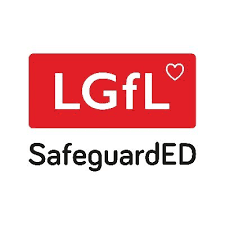Useful Links for Parents and Children

Hampshire Safeguarding Children Board (HSCB) is the key statutory body overseeing multi-agency child safeguarding arrangements across Hampshire.
The Board is collectively responsible for the strategic oversight of local safeguarding arrangements. It does this by leading, coordinating, challenging and monitoring the delivery of safeguarding practice by all agencies across the county.
The site provides information, resources and support on a range of topics including.
Online Safety
Domestic Abuse
Early Help
Eating Disorders
Mental Health
Sexual Exploitation
Worried about yourself, a friend or a child or young person you know?
Parents can use this site to report any concerns by completing an Interagency Referral Form.

Parent Info is a free service that shares articles, tips, expert advice and resources designed to help parents keep up with what their children are doing on-line.
This is an excellent searchable A-Z collection of up to date information on a range of topics including:
Online safety
Sex and Relationships
Mental Health
Physical health and body image
Family Life
School Life – exams and homework

The NSPCC website offers helpful information for parents and carers on a range of issues, such as internet safety, protecting children at home and positive parenting tips.

This site aims to “make online parenting simple”.
It acknowledges that whether a parent is a technophobe or a technophile, it’s still likely that we’ll be playing catch-up with the way our children are using the internet. It asks us to think, “How can I be as good a parent online as I am offline?”
It answers the following questions:
What is my child doing online?
How do I talk to my child about what they are doing online?
What risks might my child face?
What tools are there to help me keep my child safe online?

With age specific advice, this site can help you to find out more about what your children might be doing online and give you some simple, practical and easy advice on the steps you can take as a parent to keep them as safe as possible.
Topics include:
Cyber Bullying
Online Grooming
Inappropriate Content
Online Pornography
Online Reputation

Net Aware provides parents with the information they need to understand their child’s online world and help keep them safe.
Using Net Aware, parents can form their own views about whether an app, site or game is appropriate for their children.

Covers the full range of potential risks that children may experience online. Parents can register to receive regular updates on the latest issues.
Also includes links to information on protecting ourselves and the family’s computer(s) while using the internet.

This site is aimed at children, but also gives an excellent insight to parents on topics such as bullying on social networks and ‘sexting’.

REPORT-REMOVE
Within the CHILDLINE website, there is a very useful page which is designed to help young people under 18 in the UK to confidentially report sexual images and videos of themselves and remove them from the internet:

A guide to broadband parental controls and internet safety for children.

For information and advice, and to report concerns directly to The Child Exploitation and Online Protection Centre (CEOP).
CEOP is a command of the National Crime Agency and is dedicated to tackling the sexual abuse and exploitation of children and young people.
The ‘CLICK CEOP’ button is visible to students on our website and when logged on at school.

The purpose of this website is to provide practical advice, support and resources to protect children from extremism and radicalisation.
Anyone can be vulnerable to extremism and radicalisation, but children are particularly at risk. As they grow and become more independent, it is not unusual for them to take risks, explore new things and push boundaries.
Extremist groups know young people are vulnerable and may claim to offer them answers, identity and a strong social network, and using the internet and social media to spread their ideology.


It's never easy to know how to keep our children safe when they aren't with us, and sometimes even when are, if we don't know what's happening in their lives or on their devices! Who are they talking to, what are they doing, are they okay? Don't despair though...scroll through this page for help or click a button to go straight to a particular topics.
SEXUAL ABUSE ONLINE INFO FOR PARENTS
Family Information and Services Hub
Safety Net Link:


